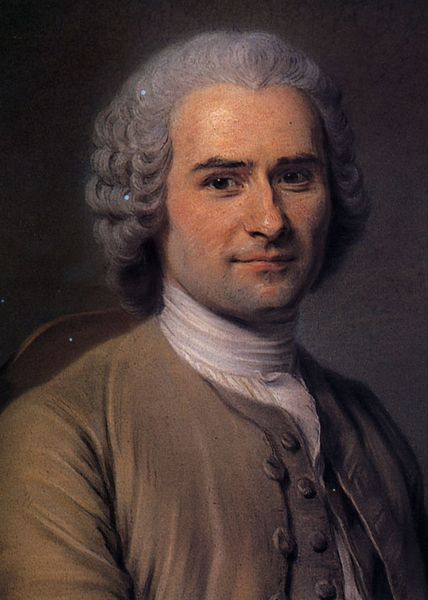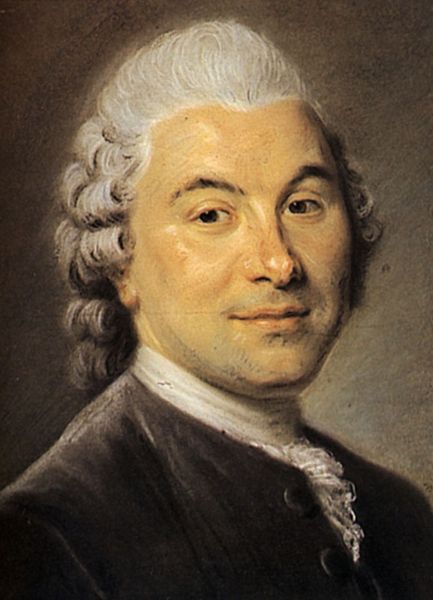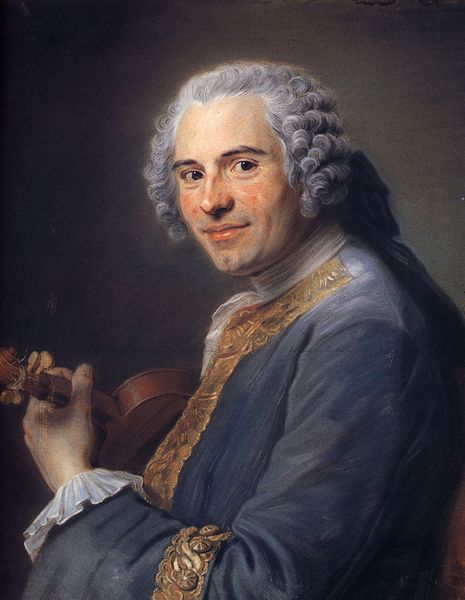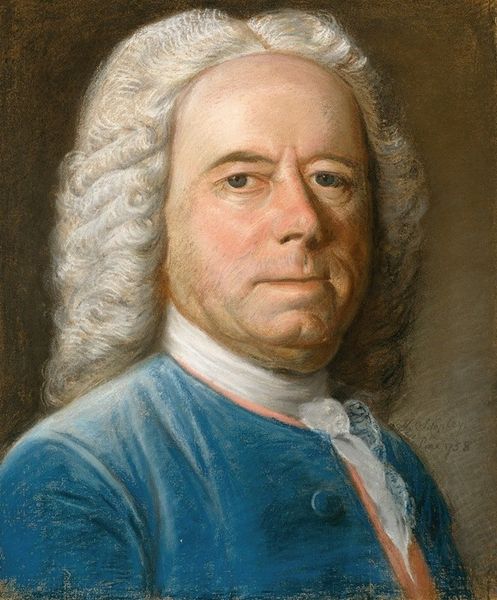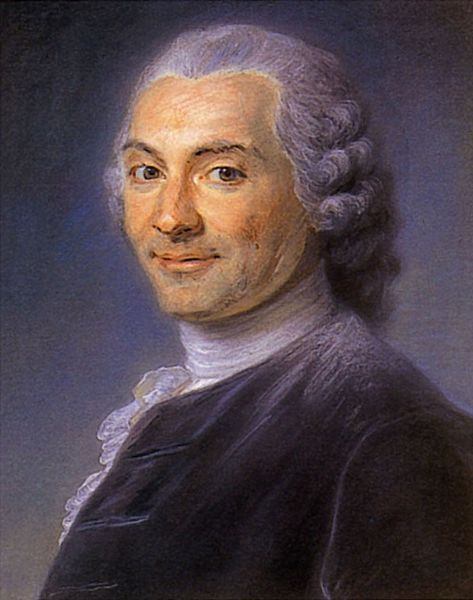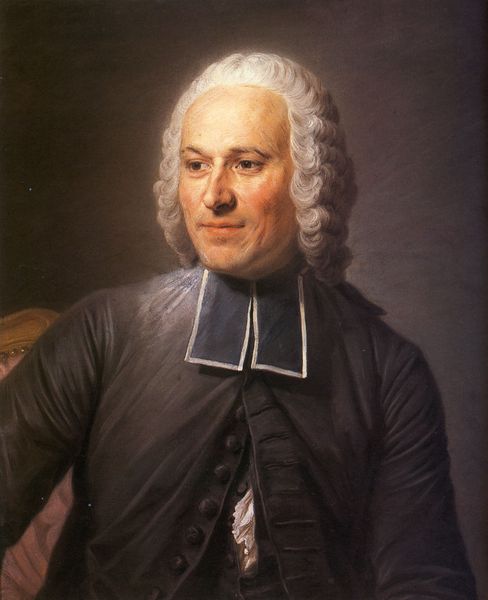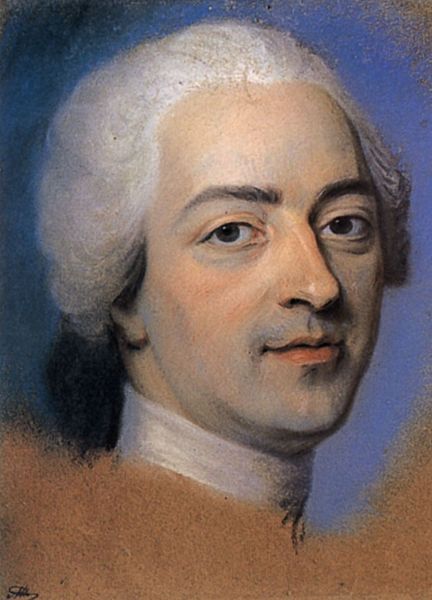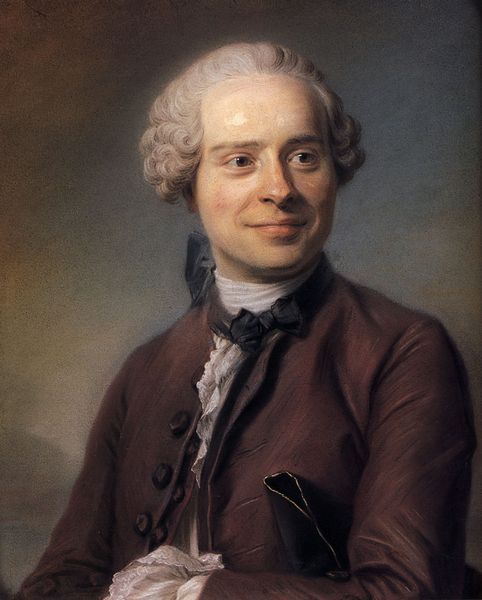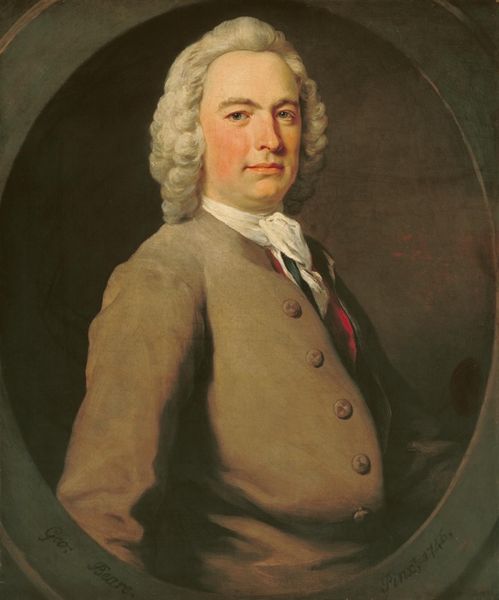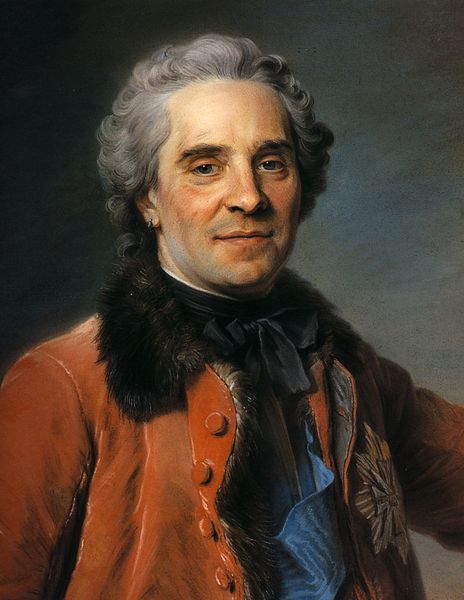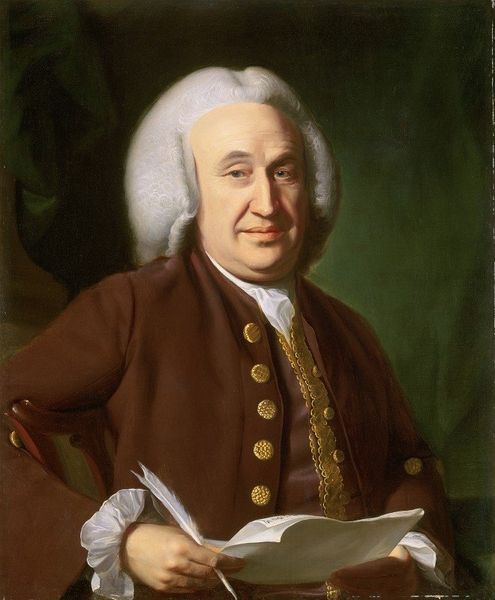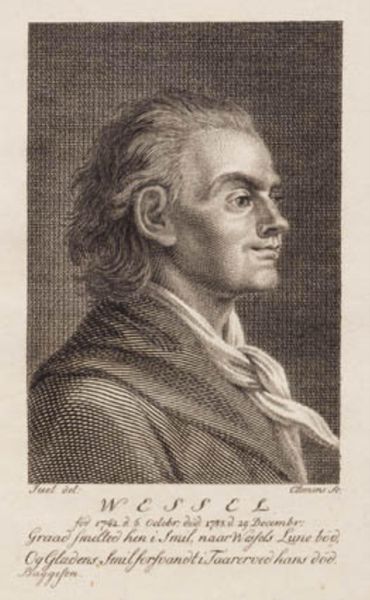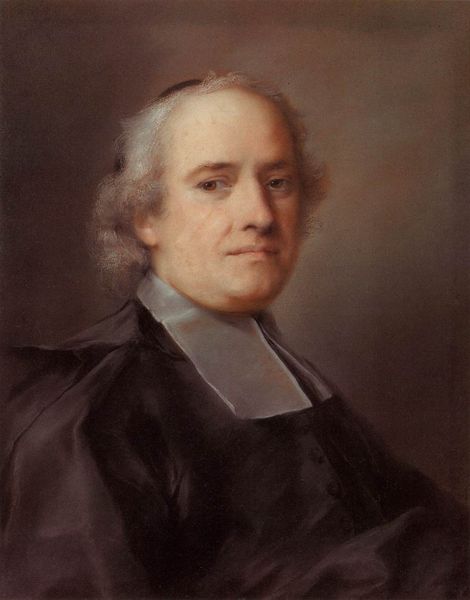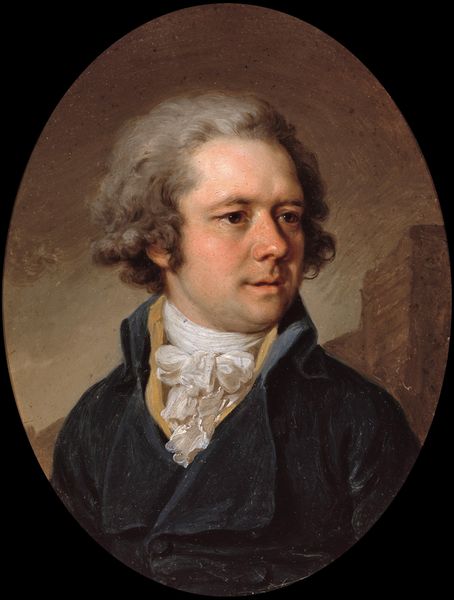
Portrait of Jean-Jacques Rousseau 1753
0:00
0:00
mauricequentindelatour
Musée d'Art et d'Histoire, Geneva, Switzerland
pastel
#
portrait
#
head
#
portrait image
#
male portrait
#
portrait reference
#
famous-people
#
male-portraits
#
portrait head and shoulder
#
animal drawing portrait
#
portrait drawing
#
pastel
#
history-painting
#
facial portrait
#
forehead
#
portrait art
#
fine art portrait
#
rococo
#
digital portrait
Dimensions: 34 x 45 cm
Copyright: Public domain
Curator: Well, isn’t this Maurice Quentin de La Tour's pastel "Portrait of Jean-Jacques Rousseau" from 1753 simply magnetic? There's an irresistible directness to it. Editor: Yes, striking is the word that comes to mind. The clarity in his gaze, juxtaposed against that powdery softness—it almost feels like a whispered confidence. And look at the tonality; earthy and subdued but alive, you know? Curator: Absolutely, La Tour was masterful at capturing likeness. Observe how the soft pastel highlights illuminate Rousseau's features. There's a gentle emphasis on his intellectual bearing, achieved through subtle shading. I’m fascinated by the apparent contrast. He seems pensive, not really inviting. What do you read from it? Editor: To me, he comes off as approachable but, at the same time, thoughtful. Look at the slight furrow in his brow; it indicates introspection. The asymmetrical tilt of his head disrupts a complete idealization of his face. I read the natural imperfections as humanity—the type that seeks an open space, but might prefer a tree. What do you make of the formal composition? Curator: Yes, a traditional structure. It's balanced, composed, focusing entirely on the figure from the shoulders up—but what draws me back every time is his eyes. There’s depth beyond the colors; an echoing chamber that is pure consciousness, but something almost sinister underneath… What might we gain, knowing it was created some years before the *Social Contract*? Editor: Good point, connecting it to his broader philosophy, maybe his questioning of societal norms finds an early expression right here in his face. And, for all its classic presentation, that hint of nonconformity feels very "Rousseau," you know? This portrait reveals far more than simple resemblance; it seems to anticipate his influence, reflecting on individual existence inside culture. Curator: Perhaps we find La Tour also pondering that moment just before revolutionary thought is solidified, then? Food for thought indeed! Editor: Truly. What a resonant encounter with a man ahead of his time.
Comments
No comments
Be the first to comment and join the conversation on the ultimate creative platform.
